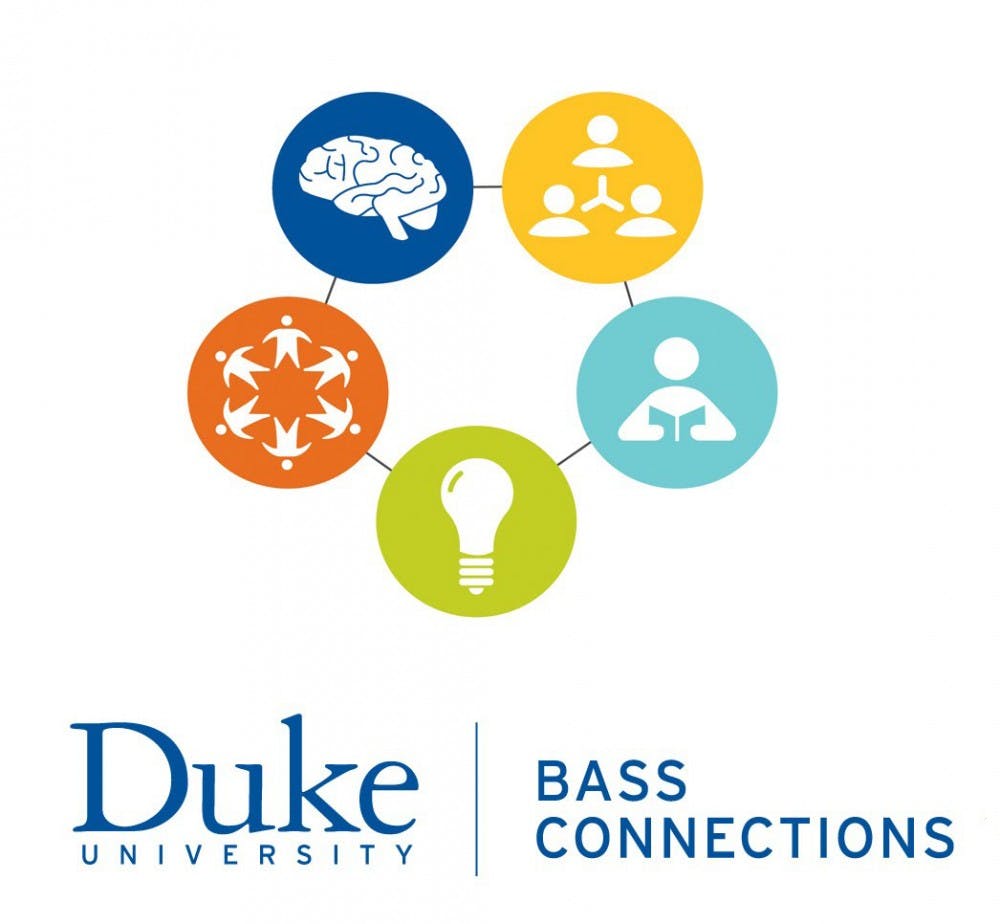Collaborative research is a little bit harder when nobody can meet in person to collaborate.
With the cancellation of in-person classes since March 10, Bass Connections has been forced to change the format of their end-of-year events and, for some teams, the structure of field research, both domestically and internationally.
End-of-year events will now be held in a virtual format, Bass Connections Director Laura Howes said. She explained that teams will be able to submit their research posters—which are presented at a public event—until the last day of classes. However, projects that rely on field research or community partnerships have seen changes to their overall structures.
A team with proposed field research in Italy preemptively canceled the trip, Howes said, and projects with community partners are figuring out how to adjust to the scope of their work. Some face particular challenges as healthcare providers have come under strain in the community, including one team that works with Lincoln Community Health Center in Durham.
Bass Connections has an annual showcase every April, which Howes said usually draws about 500 people to watch each team present their project’s work. At these events, five teams are usually selected to present five-minute lightning talks. However, this year, any team that wants to is able to submit a lightning talk via video, she said, and teams are encouraged to be creative with the mediums of their presentations.
“We are not requiring teams to participate in this process because we also recognize that there's many different challenges that people are facing right now,” Howes said. “So, we don’t want to add a burden to anyone's plate. And we want to give teams an opportunity to celebrate their work, if they want to do that.”
Kelly Hunter, a public policy doctoral candidate, is a member of the Big Data for Reproductive Health Team next year, her third year with the project. The team was scheduled to present at conferences this spring that have now been converted to virtual sessions, she said, and team meetings are now held over Zoom.
The team’s field research in Kenya has also been postponed, but the virtual showcase this year has allowed the team to explore different mediums of presentation. The project team has created a set of online apps to submit for the virtual showcase so people can interact with the app in a hands-on experience.
“I think there is some disappointment that we weren't able to do all of the things that we wanted to do,” Hunter said. “But I think there's also a sense of accomplishment and pride in all that we have accomplished this year.”
Sophomore Charlie Zong, a member of the Bass Connections Student Advisory Council, is part of the American Predatory Lending project team. Although the team does not need to conduct lab or field work, he wrote in a message, the shift to online classes has limited interactions between team members. They can no longer share small acts together, such as baking cookies for their meetings.
“We certainly miss seeing each other in person. We have to conduct our oral history interviews by phone now, as well,” Zong wrote. “But so many people have given their time to be interviewed by our team, and we've worked very hard this whole year, so we're motivated to overcome these challenges.”
Get The Chronicle straight to your inbox
Sign up for our weekly newsletter. Cancel at any time.

